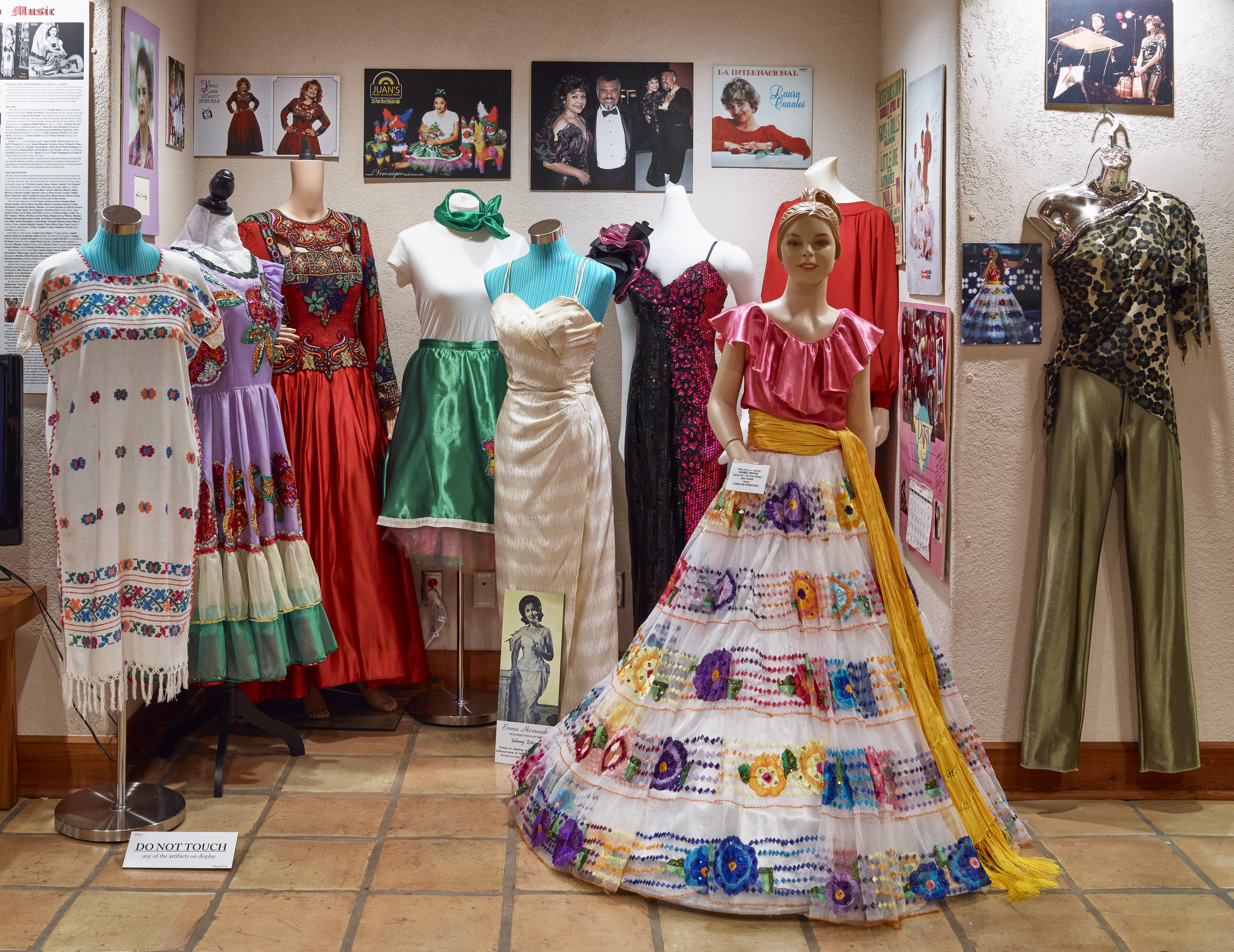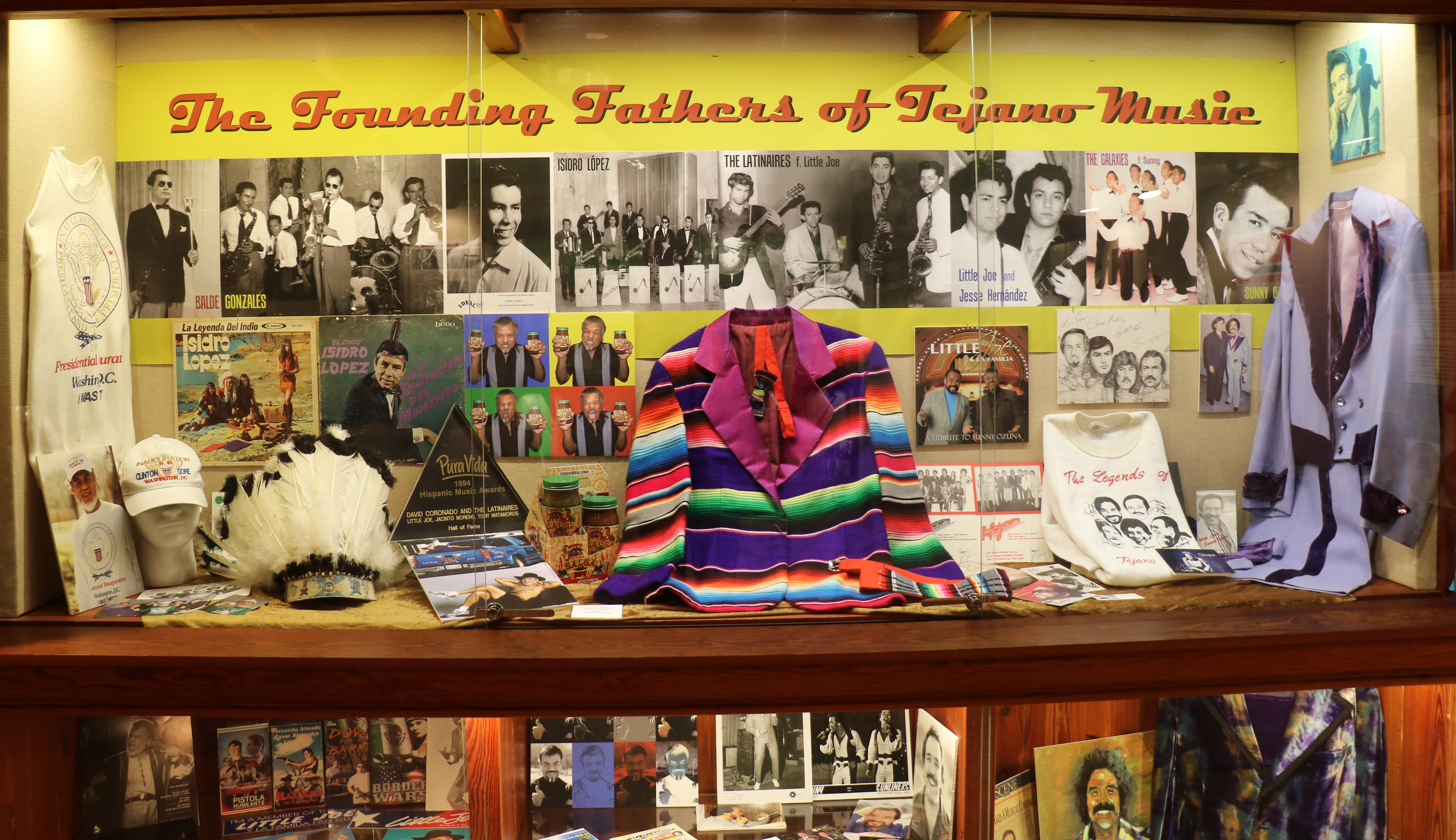Ramón Hernández says Tejano music – which he describes as Texans performing Mexican music – has always been a part of his life. He grew up with it on the radio and then spent 35 years working with Tejano musicians as a publicist and journalist. Over the years, he began a collection of photos, sheet music, rare recordings, and other memorabilia and documents. Today, some of the most striking items in his huge archive are the costumes.
“When I was working for Little Joe y La Familia, he had a closet full of outfits and he instructed one of his guys to take them out to the trash can and I said, ‘What? You’re going to throw them away?’ ‘Yeah.’ ‘Can I have them?’ ‘Sure.’ – and that’s how it started,” Hernández says.
He considered one day starting a museum – but says he found that to be an “impossible task” – and one he decided would not be right for his collection.
“It takes money and it takes a philanthropist,” Hernández says. “And when you have a museum, you put everything in one building and you saturate it with all these objects on display. It’s going to be like the locals going to the Alamo – they’ll go to the Alamo when they’re in elementary school, they’ll go to the Alamo when they have family coming over but, other than that, they’ll never go back again. And the same applies to a museum: once you’ve seen it once or twice, that’s it, you’ve fulfilled your need to see it.”
Hernández says The Wittliff Collections seemed like the perfect home.
“What was I going to do with it? It’s nice to have the collection at home but I wanted to share all that information with the people, with the public,” Hernández says.
















